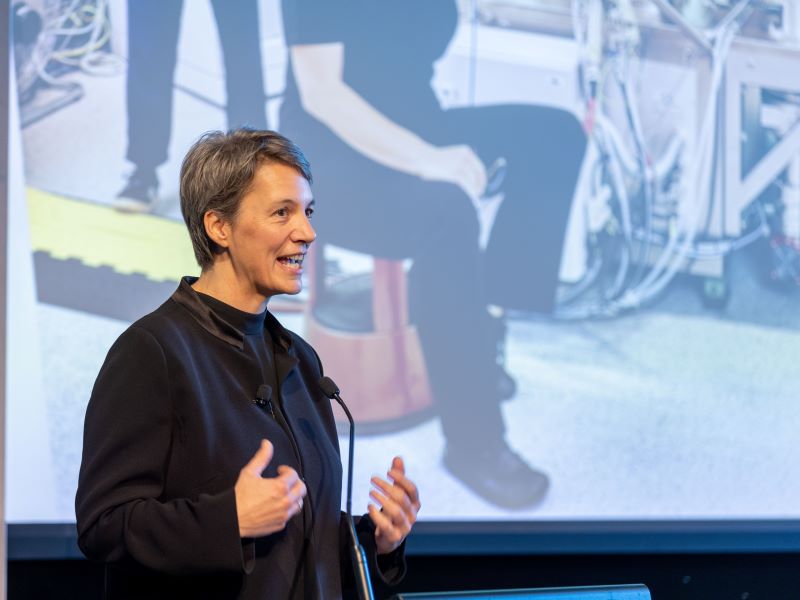Two local quantum computing startups have secured contracts with US defence research agency DARPA for a coveted benchmarking program designed to find the companies capable of achieving utility-scale within the next decade.
Diraq and Silicon Quantum Computing will take part in the first stage of the Quantum Benchmarking Initiative (QBI) over the next six months, joining 16 other firms from the United States, United Kingdom, Canada and France.
The program will assess the different quantum computing approaches of each company, building on work to date through the Underexplored Systems for Utility-Scale Quantum Computing (US2QC) Program, which is in the final stage.

With claims abound, DARPA’s ultimate goal is determining whether it is possible to build a commercially useful quantum computer “much faster than conventional predictions” and, ideally, before 2033.
Among the quantum computing approaches being tested are supercomputing qubits, trapped ion qubits, natural atom qubits, photonic qubits and semiconductor spin qubits, as well as other novel approaches.
Diraq founder and chief executive Andrew Dzurak said the company, which plans to deliver a fault tolerant quantum computer by 2028 using silicon quantum dots, was pleased to be one of the companies selected and is “confident“ in its approach.
“We are pleased to be selected by DARPA and the US government for this focus on full-scale, fault-tolerant quantum computing and welcome the opportunity to demonstrate our CMOS quantum dot qubit approach,” Professor Dzurak said.
Diraq will work with a consortium of quantum startups, including Emergence Quantum, a new Australian company set up by former Microsoft quantum researchers David Reilly and Thomas Ohki, and Riverlane.
SQC founder and CEO Michelle Simmons said the US government contract “validates” the Sydney company’s approach as the race quantum computing race heats up. She said the company is “extremely excited” to be working with DARPA.
“Not only is the associated funding incredibly useful, DARPA’s third-party interrogation of our path to a utility-scale quantum computer will be immensely valuable,” Professor Simmons said in a statement.
SQC — which is preparing to launch its first commercial product, a quantum machine learning processor that is already being used by some Australia’s largest companies — has also adopted a silicon-based approach to quantum computing.
Joe Altepeter, DARPA’s QBI program manager, said each company accepted to QBI – three of which are yet to be announced – were chosen after a “review of their written abstracts and day-long oral presentations”.

The 18 companies will now take part in a six-month sprint, where they will provide “comprehensive technical details” of their approaches to DARPA. The value of the Stage A contracts have not been disclosed, but represent a “tangible investment by the US government”, according to Diraq.
Other companies taking part in the program are: Alice & Bob, Atlantic Quantum, Atom Computing, HPE, IBM, IonQ, Nord Quantique, Oxford Ionics, Photonic Inc, Quantinuum, Quantum Motion, Rigetti and Xanadu.
A year-long Stage B, in which DARPA will examine the research and development approach of each company, will follow, with the final Stage C to involve an independent verification and validation (IV&V) team testing the companies’ hardware.
“During Stage B we’ll thoroughly review all aspects of their R&D plans to see if they can go the distance — not just meet next year’s milestones — and stand the test of trying to build a transformative technology on this kind of a timeline,” Mr Altepeter said.
“Those who make it through Stages A and B will enter the final portion of the program, Stage C, where a full-size IV&V team will conduct real-time, rigorous evaluation of… everything that goes into building a fault-tolerant quantum computer for real.”
The QBI is the umbrella program for US2QC, which entered the third and final stage with Microsoft and PsiQuantum, the Californian startup that plans to build the world’s first utility-scale, fault-tolerant quantum computer in Australia, in February.
Microsoft is progressing its palm-sized Majorana 1 chip, which is powered by the world’s first topoconductor, while PsiQuantum is moving ahead with its “mass-manufacturable” photonics chips, dubbed Omega.
Do you know more? Contact James Riley via Email.

